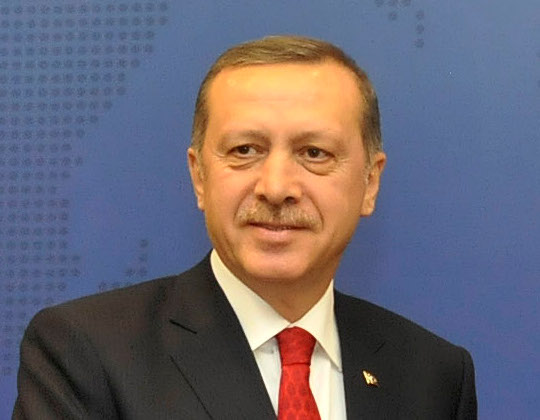 From Hurriyet Daily News: Prime Minister Recep Tayyip Erdoğan has said the U.S. statement on a “limited” military action against Syria will not be enough to satisfy Ankara , pleading for an intervention similar to the one in Kosovo in 1999.
From Hurriyet Daily News: Prime Minister Recep Tayyip Erdoğan has said the U.S. statement on a “limited” military action against Syria will not be enough to satisfy Ankara , pleading for an intervention similar to the one in Kosovo in 1999.
“A limited military action will not satisfy us. It [the intervention] should be like in Kosovo,” Erdoğan was quoted by daily Hürriyet as saying during the Victory Day reception at the presidential palace on Aug. 30.
From Gulsen Solaker and Nick Tattersall, Reuters: Turkish Prime Minister Tayyip Erdogan said on Friday that any international military intervention against Syria should be aimed at bringing an end to the rule of Syrian President Bashar al-Assad. . . .
“It can’t be a 24 hours hit-and-run,” Erdogan told reporters at a reception in the presidential palace in the capital Ankara. “What matters is stopping the bloodshed in Syria and weakening the regime to the point where it gives up. . . .”
“If it is something like the example of Kosovo, the Syrian regime won’t be able to continue,” he said.
Erdogan said he would have bilateral discussions with Obama and Russian President Vladimir Putin during the G-20 summit next week.
From Piotr Zalewski, TIME: On Wednesday, according to Turkish media, Ahmet Davutoglu, the country’s Foreign Minister, counseled his US counterpart John Kerry that any action should be forceful enough to bring Assad’s regime to the negotiating table.
A Turkish foreign ministry official, speaking to TIME anonymously, fleshed out Davutoglu’s remarks. “Any intervention should be designed to clear the way for a solution,” he says, “rather than maintaining, or rather worse, aggravating the uncertainties prevalent right now. . . .”
The more that their country involves itself in the operations, many Turks fear, the higher the risk of Syrian retaliation. Ankara is far from invulnerable. Earlier this year, NATO stationed six Patriot batteries near the country’s border with Syria at Turkey’s behest. The batteries, manned by roughly 1,200 NATO troops, can protect up to 3.5 million people from a potential missile threat, according to NATO sources, but they cannot guarantee total protection. “No missile defense can work at 100% interception rates,” says [EDAM Research Fellow Can] Kasapoglu. And while failure to intercept a conventional missile “could be tolerable,” he says, the equation changes when biological and chemical warfare is brought into the picture. A WMD-tipped ballistic missile that penetrates Turkey’s defenses could spell disaster.
Until and unless the Syrian regime feels entirely cornered, however, any overt aggression against Turkey is very unlikely. “Assad has proven himself to be either preposterously stupid or not in control of his armed forces,” says [RUSI associate fellow Aaron] Stein, but he would have to be mad to hit Turkey, a NATO member. Even if the Alliance has initially ruled out a role in a possible intervention in Syria, a major Syrian attack against Turkey could easily trigger NATO’s “mutual defense” clause. And that, says Stein, “would lead to very robust intervention by the West.”
Image: Prime Minister of Turkey Recep Tayyip Erdogan (photo: Government of Chile/Wikipedia)
